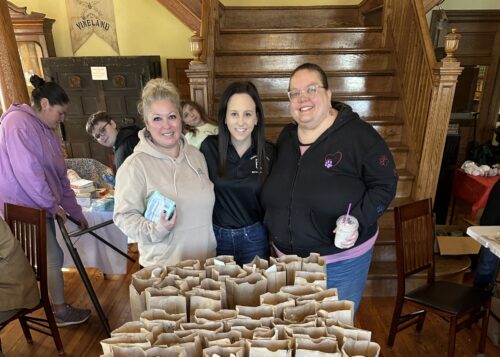Finding Your Calm
There’s a psychological basis for coronavirus fears; power of nostalgia helps during quarantine and other periods of isolation.
In light of the current coronavirus pandemic, the following expert from Rutgers University–Camden offers this discussion of a fundamental, psychological basis of coronavirus fears, as well as the power of nostalgia as a way to cope during a quarantine and other periods of isolation.
Andrew Abeyta, an assistant professor of psychology at Rutgers University–Camden, affirms that people have a fundamental need to maintain a sense of meaning in life, defined as an individual’s sense that their lives are purposeful, significant, and coherent. The coronavirus threatens many of the things that makes people’s lives meaningful and/or give them purpose, which may be stoking people’s fears of the pandemic.
“I argue in my research that there are a number of ways people maintain a healthy sense of meaning in life, such as relationships, careers, life goals/aspirations, cultural beliefs/identities, and religiosity, to name a few,” says Abeyta. “A world event of this scale threatens meaning in life in a broad way by creating confusion and uncertainty, and worry about death—the ultimate threat to meaning in life.
“However, it also threatens very specific sources of meaning: People are worried about the well-being of family and friends, they are worried about their jobs, and they are worried about how the virus will impact their goals going forward.”
Abeyta also argues in his research that nostalgia—a sentimental or wistful longing for the past—can have profound psychological benefits. Nostalgia can be one way that people are able to restore a sense of meaning in life, he says, by using it to cope with the fear and uncertainty related to the coronavirus pandemic.
“People naturally turn to nostalgia in times of confusion or uncertainty, and for good reason,” says Abeyta. “Nostalgia is a potent reminder of what makes our lives meaningful. For example, when people engage in nostalgic reverie, we are usually thinking about our most meaningful relationships—the people who love us, make us feel important, and give us confidence.
“We may also reflect on our special accomplishments or personal successes. Either way, these memories can be reassuring in the face of uncertain times and make us feel optimistic about finding meaning in the face of tragedy.”
Nostalgia can also help people to satisfy their basic social needs, he says, without actually having to connect with others.
“Reflecting nostalgically on meaningful experiences with family and friends can help ease loneliness when people are unable to directly interact with others,” says Abeyta.
That can be even more important during the current pandemic, he notes, if people are forced to isolate or keep distance from friends, family, neighbors, and others in order to stop the spread of the virus.










